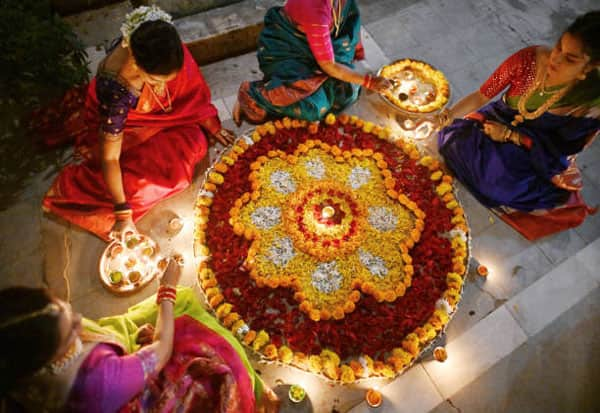/
செய்திகள்
/
Kalvimalar
/
Articles
/
Indian Culture: The Root of Unity in Diversity
/
Indian Culture: The Root of Unity in Diversity
நவ 06, 2025 08:49 AM
நவ 06, 2025 08:49 AM

India's cultural fabric is a vibrant tapestry woven with countless threads of language, tradition, art, and philosophy. Despite immense diversity, the nation stands united by shared values such as family bonds, respect for elders, and heartfelt hospitality.
Indian culture is one of the oldest and most diverse in the world, rooted in ancient traditions that continue to shape modern life. From music and dance to crafts and cuisine, every aspect of Indian culture reflects creativity, spirituality, and harmony.
A Heritage of Art and Expression
The arts have always been central to India's identity. Classical music and dance forms such as Bharatanatyam, Kathak, and Odissi embody centuries of refinement and devotion. Traditional crafts—pottery, embroidery, and weaving—showcase the country's regional distinctiveness and unmatched craftsmanship. Even clothing tells a story: sarees, dhotis, and kurtas represent the elegance and variety of India's cultural expression.
Spiritual Depth and Well-being
Spirituality forms the essence of Indian life. Practices like yoga, meditation, and prayer guide individuals toward inner peace and balance. Ancient healing systems such as Ayurveda, rooted in holistic wisdom, continue to be valued for their enduring benefits in promoting physical and mental well-being.
Flavours of Tradition
Indian cuisine mirrors its cultural diversity. From North to South, East to West, every dish reflects local ingredients, climate, and customs, symbolizing unity through shared meals and festivals. Food in India is not merely sustenance—it is an expression of tradition, community, and celebration.
Cultural Studies: A Path to Understanding
In today's interconnected world, fostering cultural understanding is vital. Integrating cultural studies into education encourages students to appreciate different traditions, histories, and worldviews. Such exposure nurtures empathy, critical thinking, and a spirit of collaboration.
Through learning about diverse cultures, children grow into global citizens—aware of issues like climate change, social justice, and international relations. Celebrating cultural diversity in schools through festivals, projects, and dialogue helps students build teamwork and mutual respect, sowing the seeds for a more harmonious future.


